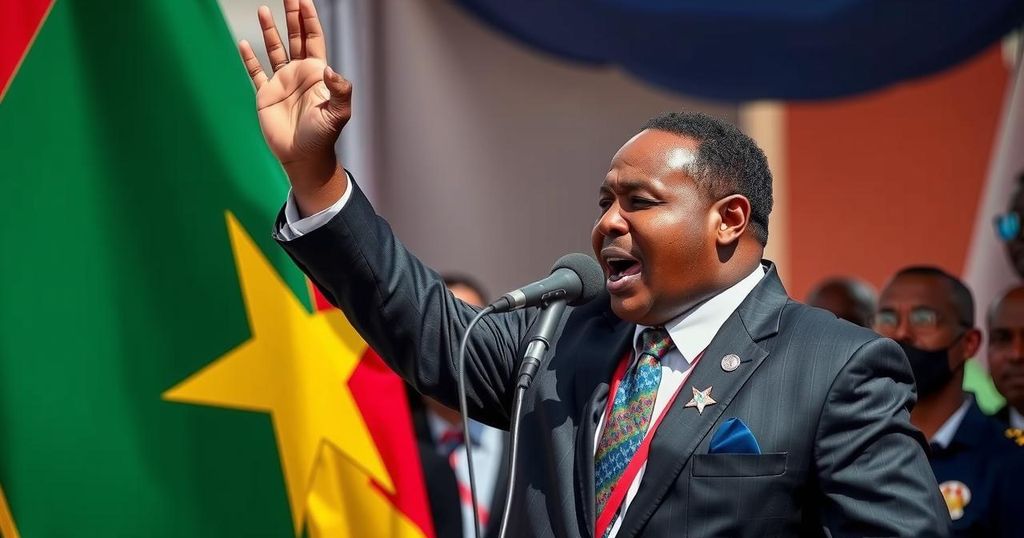Daniel Chapo Declared President of Mozambique Amid Controversy
Daniel Chapo has been declared the winner of Mozambique’s presidential election, securing around 71 percent of the vote amidst allegations of electoral fraud and violence. The election highlighted the growing discontent in the nation, particularly amid the ongoing insurgency and socioeconomic disparities. Frelimo maintains that the results reflect the people’s will, despite rising protests against the governing party.
Daniel Chapo of the ruling Frelimo party has been proclaimed the victor of Mozambique’s presidential election, a process characterized by significant violence and rampant allegations of electoral fraud. The announcement from the electoral commission revealed that Mr. Chapo secured approximately 71 percent of the vote in the election conducted on October 9th. This election will see him take over from Filipe Nyusi, who has reached his term limit after two five-year mandates. This election occurs in a context of considerable turmoil in Mozambique, particularly in light of the ongoing insurgency in the Cabo Delgado region, where Islamist militants have been active for several years. The conflict has exacerbated the existing inequalities between those capitalizing on the nation’s rich natural resources — such as natural gas and gemstones — and those suffering from high levels of poverty and unemployment. Following the election results, violent protests erupted in Maputo, the capital, where police deployed tear gas and engaged in confrontations with thousands of demonstrators. The protestors accused Frelimo of electoral malfeasance and alleged involvement in the shooting deaths of two supporters of the primary opposition candidate. However, the Frelimo party has steadfastly denied any discrepancies in the electoral process or involvement in these violent incidents. Ludmila Maguni, a spokesperson for Frelimo, asserted that the party holds confidence that the election outcomes accurately represent the electorate’s will. The recent elections and the subsequent unrest present a critical challenge to Frelimo’s authority, which has governed Mozambique since the country gained independence from Portugal in 1975 and navigated a civil war shortly thereafter.
Mozambique has been under the governance of the Frelimo party since it attained independence from Portuguese colonial rule in 1975. Over the decades, the country has faced numerous challenges, including a prolonged civil conflict that concluded in the late 1990s and a burgeoning insurgency in the north, particularly in Cabo Delgado, where Islamist militants have intensified their activities. Economically, Mozambique possesses significant natural resources that have not uniformly benefitted the populace, with many citizens continuing to experience severe economic hardship despite resource wealth. The political environment has been marked by tensions, as the opposition parties have increasingly criticized Frelimo for allegations of electoral fraud and mismanagement.
In summary, Daniel Chapo’s ascension to the presidency amid widespread electoral discord raises pressing questions about the political integrity and stability of Mozambique. The violent confrontations and allegations of electoral improprieties underscore the challenges faced by the ruling Frelimo party in maintaining its authority. As Mozambique navigates through this tumultuous period, the true implications of this election on governance and societal cohesion remain to be seen.
Original Source: www.nytimes.com




Post Comment